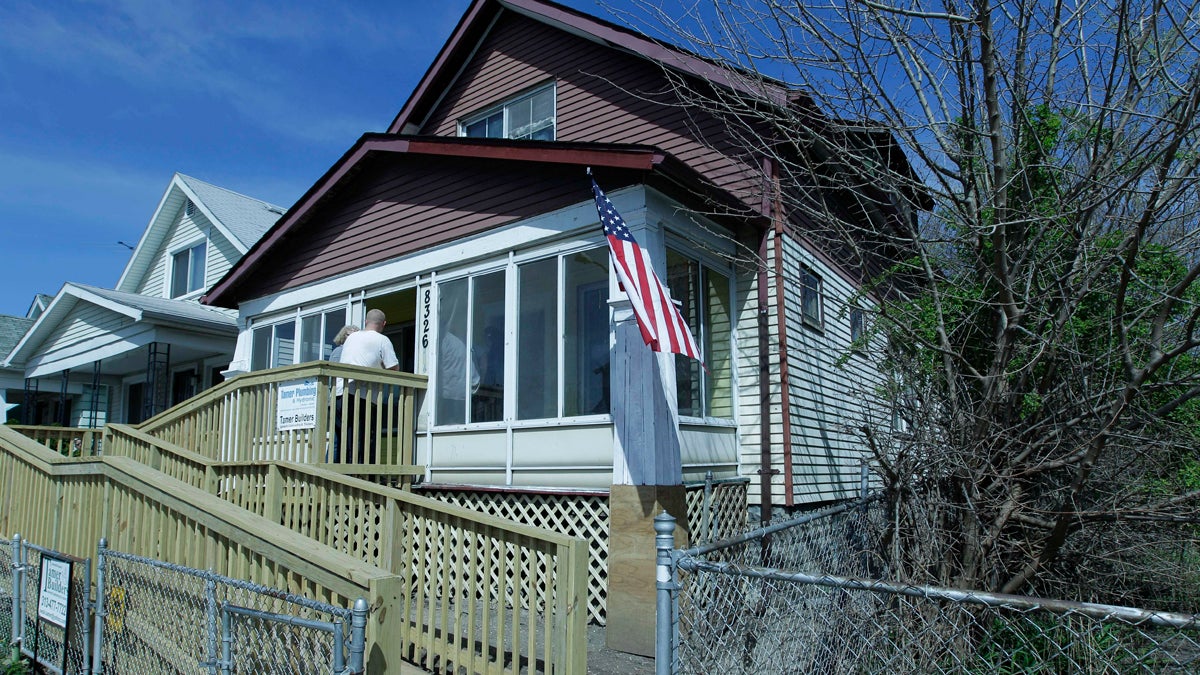For some New Jersey homeowners seeking a lifeline, reverse mortgages can backfire

Exterior of a 101-year-old woman's remodeled home. She was evicted from her foreclosed house after her son failed to pay property taxes linked to a reverse mortgage. (Carlos Osorio/AP Photo)
More than 1,200 New Jersey homeowners have defaulted on reverse mortgages offered through the federal government and were foreclosed on since 2005, according to a new report by Stockton University.
“It can be a life raft if [borrowers] don’t have adequate retirement savings,” said David Carr, who wrote the report.
“On the other hand, it is a complex loan for which you pay significant costs, and it can ultimately lead to the loss of your home.”
The Federal Housing Administration offers reverse mortgages to qualified borrowers aged 62 and older, allowing people to take out a loan against their homes without making regular payments.
(Private companies also offer reverse mortgages, according to Carr, but the FHA offers the vast majority of the loans.)
Homeowners are required to keep current on their property taxes, pay their homeowner’s insurance, and maintain their property in order to fulfill their end of the reverse mortgages — rules that many people may not fully understand before taking out out the loan, according to Carr. And defaulting on a reverse mortgage could lead to foreclosure.
In Ocean County, the county with the highest rates of reverse mortgage foreclosures, 233 borrowers lost their homes after taking out the FHA loan since 2005.
Camden and Mercer counties also had high numbers of reverse mortgage foreclosures.
“These kinds of mortgages are very different than others, and there are unique risks involved,” said Brian McGuire, associate state director of AARP New Jersey.
“Certainly if you don’t pay your insurance, your property taxes and such, if you don’t maintain your home properly, then you could default on the mortgage.”
Noting that homeowners can also take home equity loans or lines of credit instead, McGuire suggested possible borrowers consult with a financial planner and do their research before settling on a reverse mortgage.
WHYY is your source for fact-based, in-depth journalism and information. As a nonprofit organization, we rely on financial support from readers like you. Please give today.




